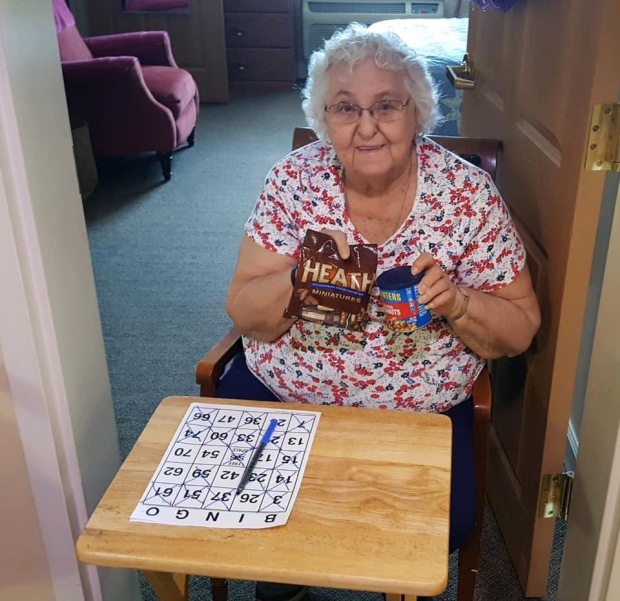There is general agreement that demand for senior care will keep growing as the population ages.
There were about 52 million Americans aged 65 or older in 2019, representing about 16% of the U.S. population, according to the Administration for Community Living, a division of the U.S. Department of Health and Human Services.
That number is expected to nearly double to 95 million by 2060, when those 65 or older will account for 23% of the general population. In Pennsylvania, people 65 or older make up 18.7% of the overall population, with the senior population in Berks County at 17.6%, according to the U.S. Census Bureau.
While there is concern that this increasing senior population will strain resources and make it difficult for people to access care they need, experts are looking at technology for help, pointing toward apps to help seniors optimize their medicines, exercise and diet; wearable devices that enable physicians to monitor patients from their homes; special clothing that can detect balance problems and falls; and other transformative solutions.
According to Shawn Barndt, executive director at Chestnut Knoll, an assisted living facility in Boyertown, the pandemic increased interest in senior care options among older adults and their families.
The need for seniors to isolate in their homes resulted in a variety of health issues — both physical and emotional, Barndt said. Decreased physical activity and social isolation among homebound seniors took its toll, increasing demand for Chestnut Knoll’s home care services, as well as interest in its residential facilities.
Nationwide staffing shortages can make it difficult to find dependable in-home care for seniors, Barndt said, leading seniors and their families to consider the security of an assisted living facility, where help is always available.
“Those who formerly would have stayed at home longer may be looking to make the move to personal care sooner to provide peace of mind,” she said.
Phoebe Ministries Retirement Community, which operates four senior living communities — two in Berks County — and has a fifth campus underway on the former Rodale corporate campus in Emmaus, Lehigh County, also is experiencing increased interest in its facilities, according to Donna Schudel, community relations and grants specialist.
Its Wernersville campus, Phoebe Berks, was updated recently with what Schudel called “a large re-imagining of the communal areas of the campus.”
The upgrade included improvements to dining services by adding a bistro and a pub, which Schudel said has become a popular meeting place. Comfortable seating areas were added, a movie theater was created and game rooms were upgraded to include pool tables.
Both Schudel and Barndt noted that technology has become a significant feature of senior living and increased in importance during the pandemic.
“The guidelines we needed to follow proactively moved the tech needle forward at a faster speed,” Barndt said.
Phoebe is technology forward, using software and devices specifically designed for integrated television programming and communication for senior communities, senior-focused engagement technology like large, touchscreen TVs with live streaming programs.
At Chestnut Knoll, residents became increasingly tech savvy during the pandemic as they learned to rely on FaceTime, Zoom, Google Duo and other programs to stay in touch with family members who were not able to visit.
Staff members posted photos of residents and various activities on social media sites so family members could stay up to date with what was happening in the facility.
“I think technology became more prevalent for everyone. Caregivers, residents and those quarantining at home,” Barndt said.
A focus on holistic wellness is another trend in senior living. In 2013, Phoebe initiated a comprehensive wellness lifestyle program called “Mind, Body, Spirit, Food” on its Wernersville campus. The program focuses on active lifestyle choices supported by wrap-around clinical care, Schudel said, and has since been instituted on all Phoebe campuses.
Some retirement communities, including Phoebe Berks, the Highlands at Wyomissing and the Heritage at Green Hills have large swimming pools for resident use, others maintain walking trails, and most offer exercise classes and other activities to keep residents active.
While interest in senior living facilities is on the rise, there also is an increase in demand for in-home services, according to David Bucher, director of Bayada Home Health Care in Spring Township.
“Without question, the need for home-based services has risen tremendously over the past two years,” he said.
Demand for at-home nursing and therapy care was increasing gradually before the start of the pandemic but took off when people became confined to their homes and didn’t want to leave for medical services, Bucher explained.
“The demand for services really picked up speed, arguably as a result of the pandemic,” he said.
Increased demand means the home health care industry will need to adjust and find ways to increase reimbursement and resources, Bucher said. While this was an issue prior to the pandemic, it has become far more apparent in the past couple years.
While some seniors need medical care in their homes, others require only personal care, such as help with bathing, dressing and preparing meals. Comfort Keepers Home Care in Spring Township, a non-medical care provider, has been filling that niche since it was founded in 2001, said Jennifer Mish, co-owner and CEO.
Increasingly, she said, seniors are looking for companionship and socialization in addition to assistance with tasks of daily living.
“We saw the need for that really go up during COVID,” Mish said. “It’s really beneficial to a person’s mental health to have someone to talk to and interact with. Comfort Keepers is honored to be a part of caring for our seniors who have cared for others their entire lives.”








